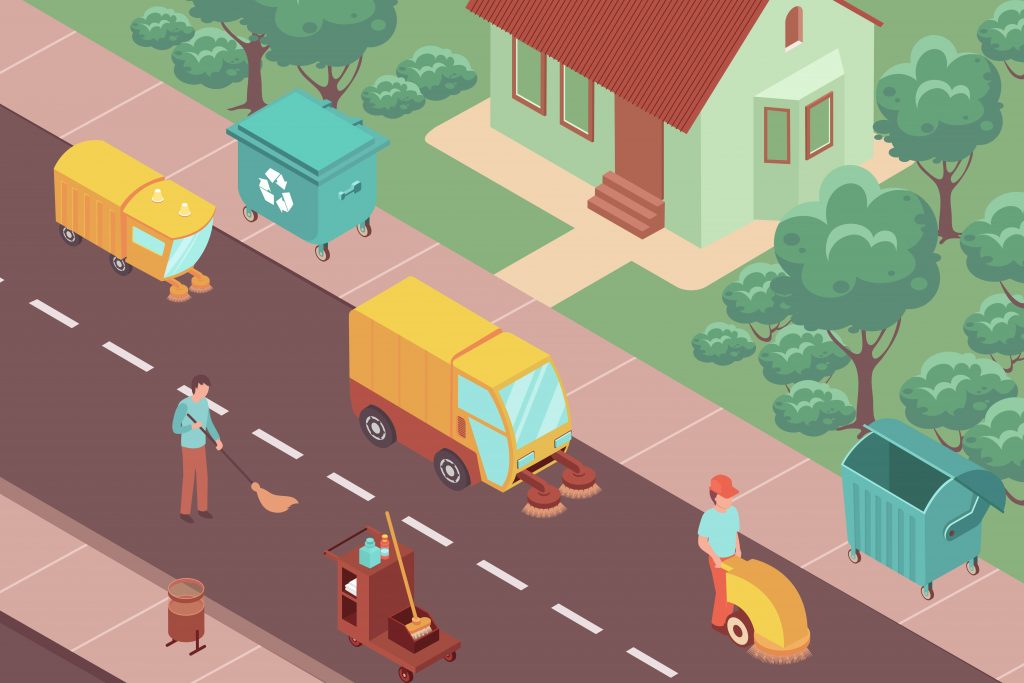
Ever pondered what becomes of your waste once it’s whisked away in a skip bin? Whether it’s debris from a construction site, remnants from home renovations, or garden trimmings, understanding the fate of your rubbish post-collection is pivotal. Delve into the journey of your waste beyond the bin and grasp the significance of responsible recycling and waste management in nurturing a greener future.
Skip Bin Hire: From Collection to Recycling
The initial step in waste management begins with collection. Once your filled skip bins are picked up by proficient waste handlers, they embark on a journey that varies widely. From construction rubble to household refuse, skip bins carry a diverse load. Transporting this mixture to specialized facilities initiates the next phase of the process.
Waste Management Facilities: Sorting Through the Heap
Upon arrival at waste management facilities, the sorting process commences. Whether it’s a construction skip bin laden with rubble or a green waste skip brimming with garden clippings, meticulous sorting is essential. Advanced technologies and manual labor intertwine to ensure effective separation. Recyclable materials like metals, plastics, glass, and organics undergo segregation for processing, while the remainder is earmarked for disposal.
Recycling and Repurposing: Transforming Trash into Treasure
Recycling and repurposing lie at the core of sustainable waste management, converting discarded items into valuable resources. This practice not only diverts waste from landfills and incinerators but also curtails pollution. At recycling facilities, materials are methodically sorted, cleaned, and processed based on type and quality. From crushed construction waste becoming building aggregate to composted green waste enriching soil, the possibilities are endless. Paper undergoes pulping, plastics are shredded, and glass is melted down, paving the way for new products and minimizing environmental strain.
Disposal of Non-Recyclable Waste: Mitigating Environmental Impact
While recycling remains a priority, disposing of non-recyclable waste poses a persistent challenge. Some materials, due to complexity or economic feasibility, evade salvaging efforts and inevitably find their way to landfills. However, modern waste management strategies strive to limit non-recyclable waste, mitigating its adverse environmental effects.
Embracing Responsible Waste Management
By opting for skip bin hire, you contribute to a sustainable future. Proper waste sorting and recycling conserve resources, diminish landfill volumes, and foster eco-friendly living. This approach nurtures a circular economy, maximizing resource utilization and endorsing enduring sustainability.
Choosing the Right Skip Bin
Selecting the appropriate skip bin aligns with your sustainability aspirations. Whether it’s a construction skip bin for building waste or a green waste skip for garden clippings, each option champions responsible waste disposal. Tailoring your choice to suit your needs amplifies recycling efficacy, ensuring a positive environmental impact.
Your Role in Environmental Stewardship
Understanding the skip bin-to-recycled treasure journey is pivotal for sustainable living. By selecting the right skip bin, segregating waste, and advocating for responsible waste management, you play a crucial role in safeguarding the planet. Every recycled item signifies a triumph for environmental conservation, reaffirming the importance of individual action in nurturing a sustainable future.










